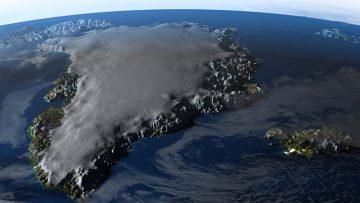From the Karakoram to Antarctica: How mathematics can help us understand the Earth’s most extreme regions, a talk by Dr Geoff Evatt (University of Manchester)
Annual Sixth Form Lecture
Abstract
Much of the world is covered by ice, and even more so has been covered in the past millions of years. Evidence of its existence is all around us: the valleys of the Peak and Lake Districts, the English Channel and even the Royal Mile in Edinburgh. Many of the Earth’s remaining glacial regions are located in extreme environments, such as the Himalayas, Patagonia, Greenland and Antarctica. Their inaccessibility means that it is hard to observe and understand the full array of glacial processes that may be operating. However such physical difficulties often present opportunities for mathematicians, who can help extend our knowledge by remotely modelling and predicting various glaciological phenomenon. Here I will talk about two such examples in which mathematics is helping push our understanding of the the glacial regions: the Ice Sails of the Karakoram; and the Lost Meteorites of Antarctica –a project that will soon see me sent off to Antarctica to find them!
About the Speaker
Geoff is an applied mathematician with a subject-venturing spirit. His undergraduate and doctorate degrees were in mathematics at Oxford University, where he began to specialise in the field of glaciology. He moved to the University of Manchester as a Research Fellow in 2008 studying operational research in the mining industry. He is now a Senior Lecturer in the School of Mathematics, specialising in understanding surface phenomenon of glaciers, and is the head of the Lost Meteorites of Antarctica project. In addition he helps look after various mathematics and industry engagements, and helps promote such interactions across the UK. In his spare time Geoff is usually found messing around the hills of the Peak District.
No charge is made to attend meetings and non-members are welcome.
Download the event poster: Annual Sixth Form Lecture, G Evatt – 07Mar18 (pdf)



